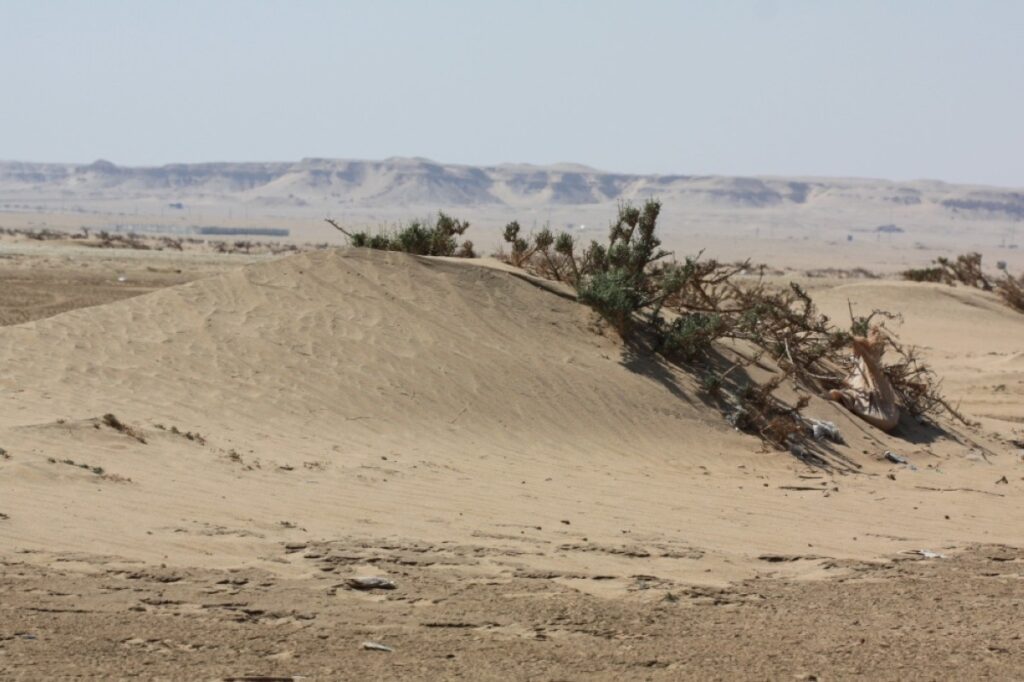KUWAIT: Dust storms and land degradation are taking a heavy toll on Kuwait, one of the most affected countries in the Gulf, prompting renewed efforts to combat desertification as the world marks the UN’s international day dedicated to the issue. With suspended sand traveling over 250 kilometers, these storms cause significant damage to ecosystems, public health, and infrastructure, according to UN studies. Dr Mubarak Al-Hajri, Chairman of the Kuwait Geosciences Society, said the country is facing a complex environmental threat that requires urgent and coordinated action. “The UN chose June 17 as World Day to Combat Desertification and Drought back in 1994,” he noted. “This is not just an environmental issue – it affects human health, food security, and the economy.”
Al-Hajri praised the role of the National Committee to Combat Desertification, supervised by the Environment Public Authority (EPA), in implementing Kuwait’s national land degradation neutrality strategy. The plan aims to reduce degraded lands from 72 percent in 2016 to between 35 and 40 percent by 2040 through afforestation, desert rehabilitation, better water management and expansion of nature reserves. “Desertification and dust storms not only threaten the environment but also negatively impact human health and the economy,” Al-Hajri added. “We must reduce air pollution and preserve fertile lands by supporting agriculture to enhance food and economic security.”
He also stressed the importance of raising awareness about sustainability and involving communities in environmental protection. He called for greater investment in research and innovation, including remote sensing technologies and climate-smart agriculture, to improve land management and monitor environmental degradation.
In a related statement, Acting Director General of the EPA Nouf Behbehani reaffirmed the authority’s commitment to protecting soil and natural resources through effective, results-driven initiatives. “Our goal is to enhance environmental sustainability in Kuwait and curb degradation through projects that also support development,” she said.
Behbehani identified desertification as one of the most serious environmental challenges in the region due to its impact on ecosystems, food supply, and quality of life. She emphasized the EPA’s dual approach of public education and international collaboration to combat land degradation and climate change.
Among the EPA’s flagship initiatives is the planting of mangrove trees in the Jahra Nature Reserve, which enhances coastal vegetation, reduces soil erosion, and lowers carbon emissions—all while supporting biodiversity and creating natural habitats for birds and marine life. The agency is also planting sidr trees, known for their drought resistance and soil stabilization properties, in targeted sites within the reserve.
This year’s global theme, “United for Land: Our Legacy, Our Future,” highlights the critical role of restoring degraded land in addressing climate change, securing food systems, and supporting biodiversity. Behbehani affirmed Kuwait’s commitment to the UN Convention to Combat Desertification, as well as the broader international frameworks on climate change and biodiversity. “Our efforts are rooted in a national vision to safeguard natural resources in ways that serve both the environment and society over the long term,” she said. — KUNA

